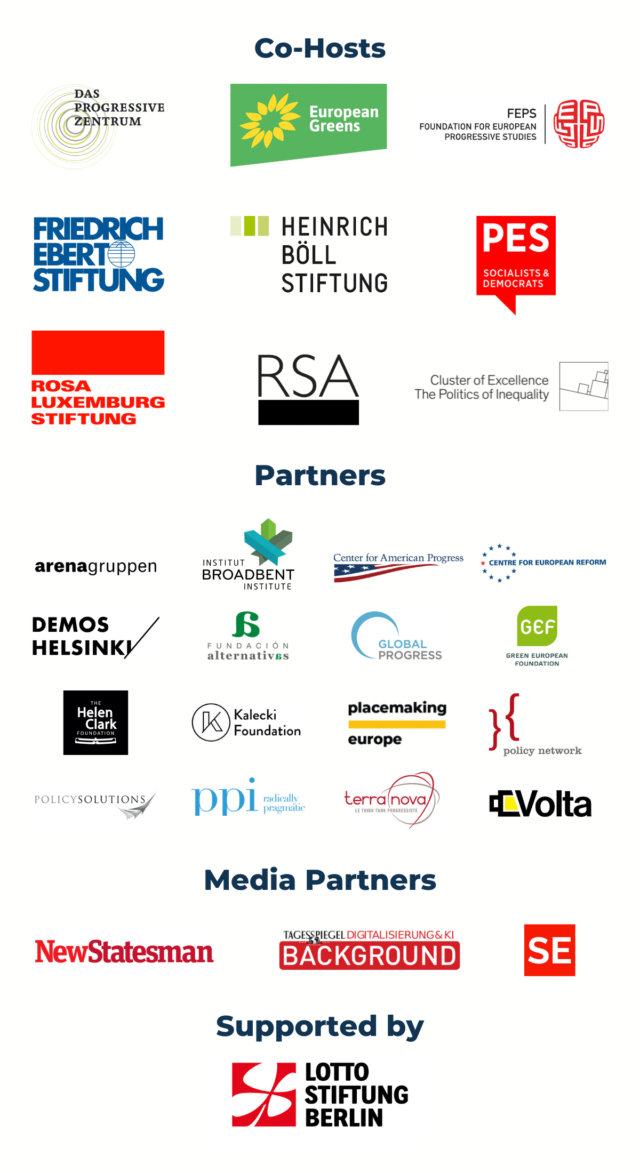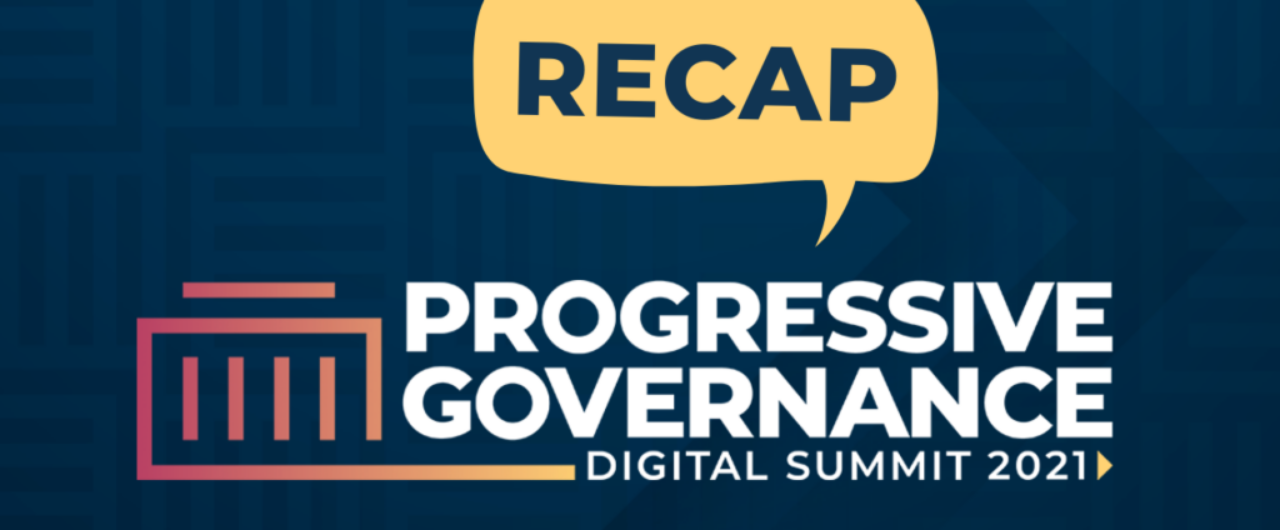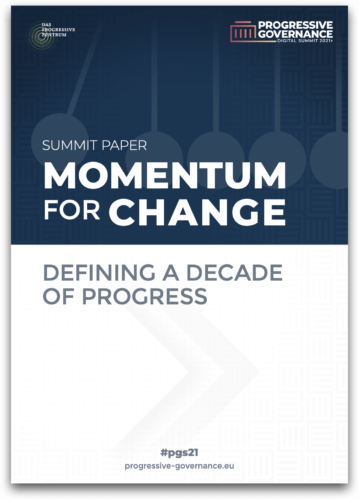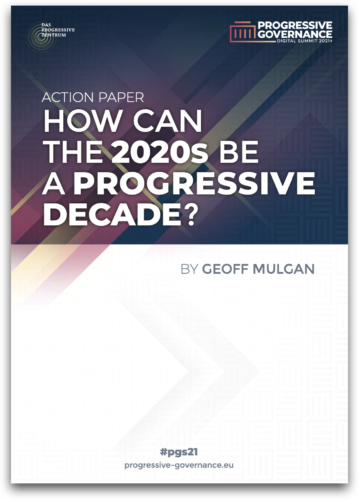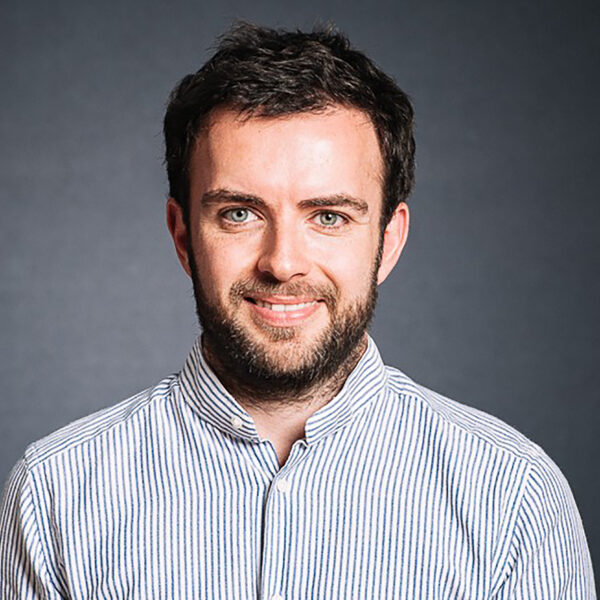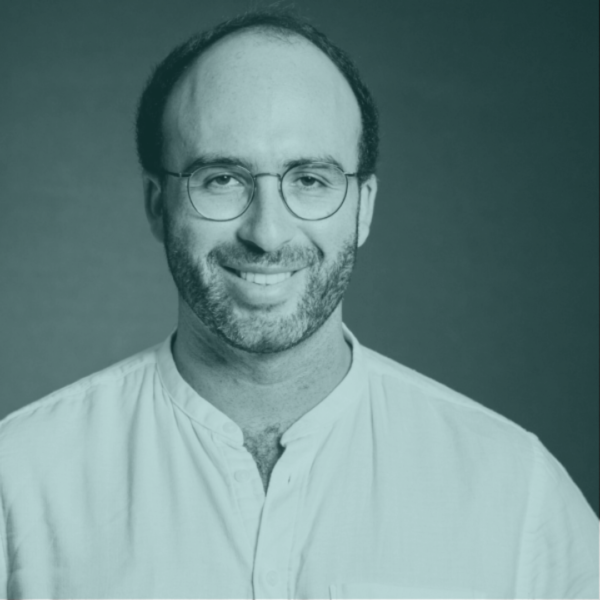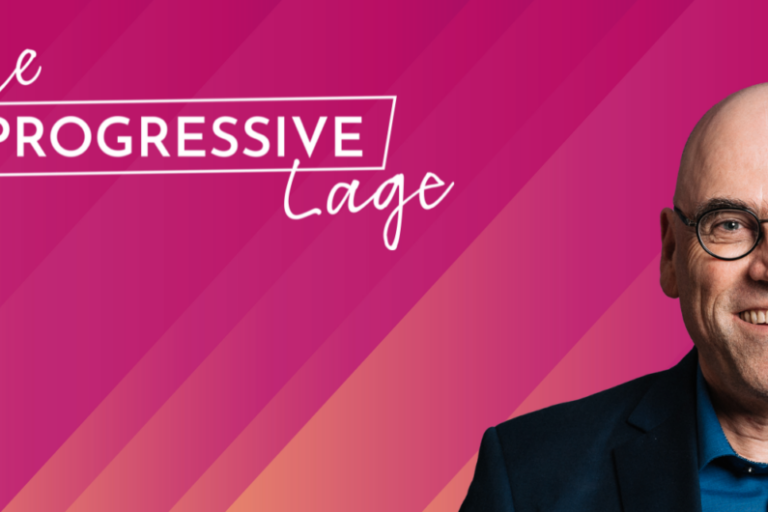From 9-11 June the progressive community came together for the 2021 Progressive Governance Digital Summit (PGS21) to debate how to make the 2020s a decade of progress. With the pandemic warranting bold action, speakers and participants focused on how to seize the current momentum to implement progressive change.
Rarely has the momentum for change on the international stage been greater, or more urgent, than in June 2021. The United States “was back”, and two days after PGS21, Biden attended the first post-Brexit and post-Trump G7 summit. Although the G7 nations had made substantial steps towards vaccinating their populations against Covid-19, the global vaccine distribution has been a stark symbol of 21st-century global inequality. Against this backdrop of change, Das Progressive Zentrum organized the 2021 Progressive Governance Digital Summit (PGS21).
Highlights from the Progressive Governance Digital Summit 2021
Momentum for Change and Shaping the 2020s as a Progressive Era
Inspired by the premise of change, the 25 sessions debated and discussed best practices on how to create political realities capable of delivering just and green societies. With a focus on democratic institutions, the future of Europe, progressive leadership and implementing “green new deals”, the consensus was that a decade after the global financial crisis, more encompassing and bold responses are needed to combat the current Covid-19 pandemic and then emerge into a new progressive political era.
Action Guide: 5 Paths Towards a Progressive 2020s
1. The 2010s saw sound democratic institutions be threatened by far-right political parties and the detrimental spread of misinformation. In response, which narratives can empower coalitions and help restore trust in democracy? No matter the slogan or story, bold policies and structural reform are needed to eliminate inequalities.
2. As societies enter a post-pandemic reality, it is more important than ever to clearly articulate and reverse racial and economic disparities. The past decade has made it clear: democratizing our societies is a continual process and one we must not take for granted.
3. When it comes to combating the climate crisis, progressives must win the debate on the how and when. New green economic paradigms, investment in green infrastructure, and carbon-free innovation landscapes must be people-centered, founded in social values, and for all. It is time to seize this opportunity for a sustainable transatlantic partnership, for the sake of our planet.
4. The response to unfettered global finance, precarious labour markets, and the dominance of tech is more transparency and collaboration while prioritizing labour. How local economies and people’s wellbeing can be protected while rejecting protectionism, nationalism and xenophobia will be an era-defining challenge.
5. For all of this and more, progressives need to occupy political spaces, from city halls to winning elections at all levels of governance. Political parties and social movements would both benefit from improving their symbiotic relationship. And when based in progressive values of justice and an inhabitable planet, politics can come first.
These five paths are a framework for action based on the belief that the best years lie ahead, not behind.
PGS21 was a call to action for all levels of government to take bold action not only against the pandemic, but for a just and green society.
The summit created space to debate how to best build off of progressive momentum currently found in places such as the city halls of Budapest to governments in Spain, Canada and the United States as well as windows of opportunities such as the 2021 German Election and the end of the Merkel era.
The summit’s core question was: what can progressives do now to make the 2020s a decade of progress?
In a world and at a time where there is tremendous anxiety, not just because of the pandemic, but because of the pace of change, because of climate change, our role as governments is to reassure, inspire and empower citizens to see a better future for themselves!
Justin Trudeau, Prime Minister of Canada, answering the summit’s core question
Progressive Leadership – Lessons from the Source
PGS21 provided a platform for progressive leaders to share first-hand how they have reacted to the pandemic and their plans for a new political era post-pandemic. Over 100 elected officials and thought leaders answered questions on how to best address increasing inequalities, dooming ecological catastrophes and crumbling infrastructure.
Top Speakers at PGS21
- Justin Trudeau, Prime Minister of Canada
- Olaf Scholz, Chancellor of Germany
- Nadia Calviño, Second Vice-President of Spain
- Robert Habeck, Co-Chairman of the German Green Party
- Ardalan Shekarabi, Social Security Minister of Sweden
- Margrethe Vestager, Executive Vice-President of the European Commission for A Europe Fit for the Digital Age
- Franziska Giffey, Candidate for Mayor of the City of Berlin
- Jagmeet Singh, Leader of Canada’s New Democratic Party
- Hubertus Heil, Federal Minister for Labour and Social Affairs of Germany
- Gergely Karácsony, Lord Mayor of the City of Budapest
- Leah Greenberg, Co-Founder and Co-Executive Director at Indivisible
Intergenerational Justice: Framework for a Progressive 2020s
Attaining justice underlay many of the PGS21’s discussions and debates. Whether social, economic, or environmental justice, many speakers highlighted the urgency of politics that put people and the planet first. A major challenge for progressives is how to identify, communicate, and implement solutions to these intertwined issues.
What are the instruments? One is a new paradigm in economics. Going away from the idea of an isolated individual trying to maximize his profit and putting into the center of economic theory and practice people as caring and social beings.
Alexandra Geese, Member of the European Parliament (EPA)
Intergenerational justice is a framework that clearly articulates and connects the injustices in society. Such a generational approach can persuasively connect inequalities and exclusionary policies in the past to divisions in society experienced today. At the same time, it also provides a longer timeframe into the future, which allows progressives to focus on policies with the necessary vision and scope.
From understanding the long-term consequences of climate change to acknowledging unsuccessful policies in the 2000s and 2010s, the PGS21 sessions examined how progressives can act now to implement progressive 2020s. From the discussion and debates, it became clear that a new political era would need to be based on intergenerational justice: action and leadership that brings justice to communities who have been wronged in the past while also working towards a future with an inhabitable and democratic planet.
Fear is the exact opposite of a progressive agenda, that is why we need to provide certainty particularly in the aftermath of the pandemic. (…) Young people were disillusioned by the financial crisis. Some of these scars have not healed when the pandemic hit us. We have to be aware of the lack of intergenerational fairness and make clear: the exit to this crisis is different than the last. The government and Europe have a plan and the financial resources.
Nadia Calviño, Second Vice-President of Spain
PGS is an annual conference that brings together progressive changemakers from around Europe and North America. As in 2020, this year’s PGS was 100% online. The yearly gathering is a space for liberals, greens, social democrats and socialists to discuss and debate how to make our societies more green and just. With 25 partners and over 100 speakers, this year’s edition debated how to seize political momentum for change and define the 2020s as a decade of progress.
